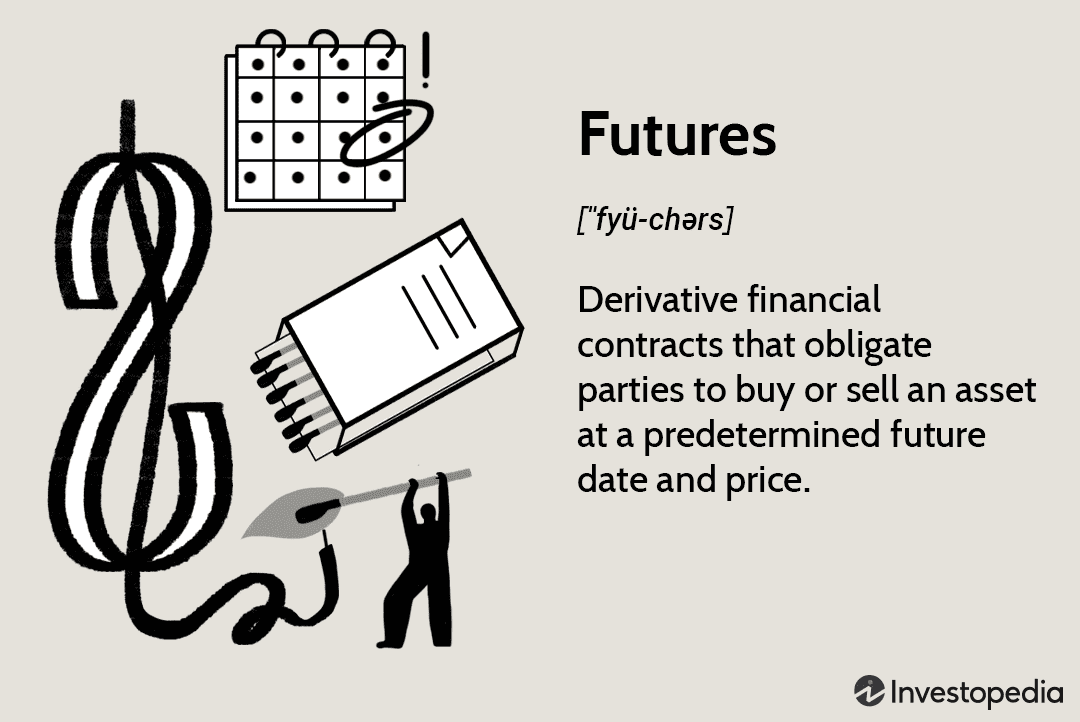
E-minis are a great option for traders who wish to invest in the S&P 500. E-mini contracts are similar in size to full-sized forwards contracts but have smaller margins. E-minis can be used as an investment tool by individual traders.
E-minis appeared for the first time at Chicago Mercantile Exchange, in 1997. E-minis were created to make futures trading easier for smaller investors and traders. The E-mini is approximately one-fifth larger than a standard S&P contract. This makes the E-mini contract an ideal instrument for traders that don't have the capital required to purchase a full-sized futures contract. E-minis are also available for spread trading.
E-minis are available in two versions, Micro E-mini and Regular E-mini. The Micro E-mini has a multiplier value of $5 and is one-tenth as large as the regular contract. A mobile trading platform is also available for the Micro E-mini. The Schwab StreetSmartCentral Platform allows traders to access the Micro E-mini. The contract is traded six days a week. This is a benefit for individual traders who might not have the time or the desire to trade.

Micro E-mini S&P makes a great investment tool for those who are looking to invest in the S&P 500, but have limited capital. The Micro E-mini S&P is $5 per point change. It is also available for trading during the day. Micro Emini S&P was created to lower the entry barriers for traders. It's also a good tool for investors who need to be able hedge their positions and manage the stock allocation risk.
When trading on the E-mini market, traders should have a clear goal in mind. Trader should have a clear goal and a plan. A good plan can help traders stick to their goals, and they can avoid losing money. E-mini trading comes with many risks. There are many ways to make money. Investors have the option to end trades at any time if they are successful. If the trade doesn't go according to plan, they can try another strategy.
CME Group introduced Micro E-mini S&P May 2019. This contract allows investors take positions on the big four U.S. indices: S&P 500. NASDAQ 100. Russell 2000. It also offers weekly options for Wednesday and Friday expirations.
E-mini market traders have many options to make money. These strategies can be time-consuming and take patience. A competitive edge is also necessary for traders to succeed. To help them become disciplined, traders should have a mentor. They should have a plan to follow, and they should try to achieve two wins during a trade. They can give up if they fail.

In the end, the best strategy for trading the E-mini is to have a plan for your entry, your stop loss, and your target position. You need to be consistent with your plan until reaching your goals.
FAQ
Who can trade on the stock exchange?
Everyone. All people are not equal in this universe. Some people have better skills or knowledge than others. They should be recognized for their efforts.
Trading stocks is not easy. There are many other factors that influence whether you succeed or fail. If you don’t know the basics of financial reporting, you will not be able to make decisions based on them.
Learn how to read these reports. You must understand what each number represents. And you must be able to interpret the numbers correctly.
You will be able spot trends and patterns within the data. This will help to determine when you should buy or sell shares.
And if you're lucky enough, you might become rich from doing this.
What is the working of the stock market?
By buying shares of stock, you're purchasing ownership rights in a part of the company. A shareholder has certain rights over the company. He/she can vote on major policies and resolutions. He/she has the right to demand payment for any damages done by the company. He/she also has the right to sue the company for breaching a contract.
A company cannot issue shares that are greater than its total assets minus its liabilities. This is called "capital adequacy."
A company with a high capital sufficiency ratio is considered to be safe. Companies with low ratios are risky investments.
What is the difference in marketable and non-marketable securities
The differences between non-marketable and marketable securities include lower liquidity, trading volumes, higher transaction costs, and lower trading volume. Marketable securities can be traded on exchanges. They have more liquidity and trade volume. Because they trade 24/7, they offer better price discovery and liquidity. There are exceptions to this rule. Some mutual funds, for example, are restricted to institutional investors only and cannot trade on the public markets.
Non-marketable securities tend to be riskier than marketable ones. They usually have lower yields and require larger initial capital deposits. Marketable securities are generally safer and easier to deal with than non-marketable ones.
For example, a bond issued in large numbers is more likely to be repaid than a bond issued in small quantities. The reason for this is that the former might have a strong balance, while those issued by smaller businesses may not.
Marketable securities are preferred by investment companies because they offer higher portfolio returns.
How Does Inflation Affect the Stock Market?
Inflation can affect the stock market because investors have to pay more dollars each year for goods or services. As prices rise, stocks fall. That's why you should always buy shares when they're cheap.
What is the difference in a broker and financial advisor?
Brokers are specialists in the sale and purchase of stocks and other securities for individuals and companies. They take care of all the paperwork involved in the transaction.
Financial advisors are experts on personal finances. They are experts in helping clients plan for retirement, prepare and meet financial goals.
Banks, insurers and other institutions can employ financial advisors. They may also work as independent professionals for a fee.
Consider taking courses in marketing, accounting, or finance to begin a career as a financial advisor. Also, it is important to understand about the different types available in investment.
What is a fund mutual?
Mutual funds consist of pools of money investing in securities. Mutual funds offer diversification and allow for all types investments to be represented. This helps to reduce risk.
Managers who oversee mutual funds' investment decisions are professionals. Some funds let investors manage their portfolios.
Mutual funds are often preferred over individual stocks as they are easier to comprehend and less risky.
Why is a stock called security.
Security is an investment instrument, whose value is dependent upon another company. It may be issued either by a corporation (e.g. stocks), government (e.g. bond), or any other entity (e.g. preferred stock). The issuer promises to pay dividends and repay debt obligations to creditors. Investors may also be entitled to capital return if the value of the underlying asset falls.
Statistics
- The S&P 500 has grown about 10.5% per year since its establishment in the 1920s. (investopedia.com)
- Ratchet down that 10% if you don't yet have a healthy emergency fund and 10% to 15% of your income funneled into a retirement savings account. (nerdwallet.com)
- Even if you find talent for trading stocks, allocating more than 10% of your portfolio to an individual stock can expose your savings to too much volatility. (nerdwallet.com)
- US resident who opens a new IBKR Pro individual or joint account receives a 0.25% rate reduction on margin loans. (nerdwallet.com)
External Links
How To
How can I invest into bonds?
You will need to purchase a bond investment fund. You will be paid back at regular intervals despite low interest rates. These interest rates can be repaid at regular intervals, which means you will make more money.
There are several ways to invest in bonds:
-
Directly purchasing individual bonds
-
Buy shares in a bond fund
-
Investing with a broker or bank
-
Investing via a financial institution
-
Investing in a pension.
-
Directly invest with a stockbroker
-
Investing via a mutual fund
-
Investing through a unit-trust
-
Investing via a life policy
-
Private equity funds are a great way to invest.
-
Investing through an index-linked fund.
-
Investing with a hedge funds